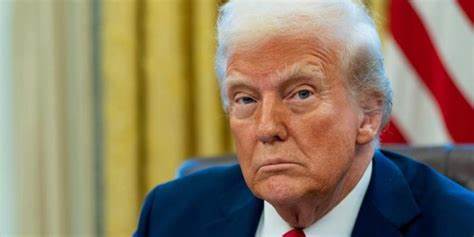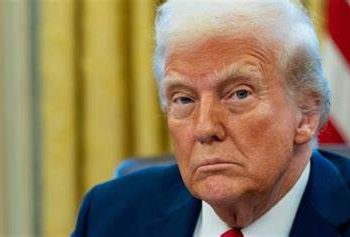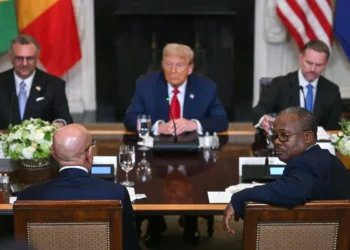President Donald Trump has unveiled a sweeping new policy initiative that would provide every American child born during a four-year window with a $1,000 federal investment account designed to harness market growth for long-term wealth building.
The proposal, announced Monday during a White House roundtable featuring more than a dozen prominent chief executives, would establish what Trump has dubbed “Trump accounts” for children born between January 1, 2025, and December 31, 2028. The initiative represents a significant expansion of federal involvement in personal wealth accumulation and long-term savings programs.
Speaking to business leaders from major corporations including Uber, Goldman Sachs, and Dell Technologies, Trump outlined the program’s structure as a tax-deferred investment vehicle that would automatically track overall stock market performance. The federal government would make a one-time $1,000 contribution to each eligible child’s account, establishing the foundation for potential decades of compound growth.
Under the proposed framework, parents or legal guardians would maintain control over the accounts and could supplement the initial federal investment with additional private contributions of up to $5,000 annually. This feature would allow families with greater financial resources to significantly enhance their children’s long-term investment potential while ensuring that all eligible children receive the baseline federal contribution regardless of family income levels.
Trump positioned the initiative as a family-focused economic policy designed to leverage America’s financial markets for generational wealth transfer. He described the program as “a pro-family initiative that will help millions of Americans harness the strength of our economy to lift up the next generation,” emphasizing the potential for market appreciation to substantially increase account values over time.
The timing of the announcement, occurring during a high-profile business roundtable, suggests the administration views private sector engagement as crucial to the program’s success. The presence of financial industry executives like those from Goldman Sachs indicates potential collaboration opportunities in program administration and investment management services.
The four-year eligibility window would encompass Trump’s current presidential term, creating a direct connection between his administration and the program’s beneficiaries. Children born during this period would carry these investment accounts throughout their lives, potentially providing substantial financial resources for major life events such as education, home purchases, or retirement planning.
The tax-deferred structure means that investment gains within the accounts would not be subject to immediate taxation, allowing for more efficient compound growth over extended periods. This approach mirrors successful retirement savings programs and could provide significant financial advantages for program participants compared to traditional taxable investment accounts.
The proposal raises important questions about program administration, funding mechanisms, and long-term fiscal implications. The federal government would need to establish systems for account creation, management, and oversight while ensuring appropriate investment options that balance growth potential with risk management for minors’ assets.
Implementation would likely require congressional approval and detailed regulatory framework development to address issues such as account portability, withdrawal restrictions, investment options, and administrative oversight. The program’s success would depend heavily on sustained political support and adequate funding mechanisms to support millions of individual accounts.
The initiative comes as the Trump administration seeks to demonstrate concrete benefits for American families while promoting confidence in domestic financial markets. By linking the program to stock market performance, the policy implicitly encourages long-term optimism about American economic growth and market stability.
Financial experts will likely analyze the program’s potential impact on market dynamics, considering how millions of new investment accounts could affect trading volumes, market stability, and long-term capital formation. The systematic investment of federal funds into market-tracking vehicles could represent a significant new source of consistent market demand.
The announcement reflects Trump’s broader economic philosophy emphasizing market-based solutions and private sector growth as mechanisms for addressing social and economic challenges. The program would create direct financial stakes for millions of American families in the country’s economic performance and market success.

















